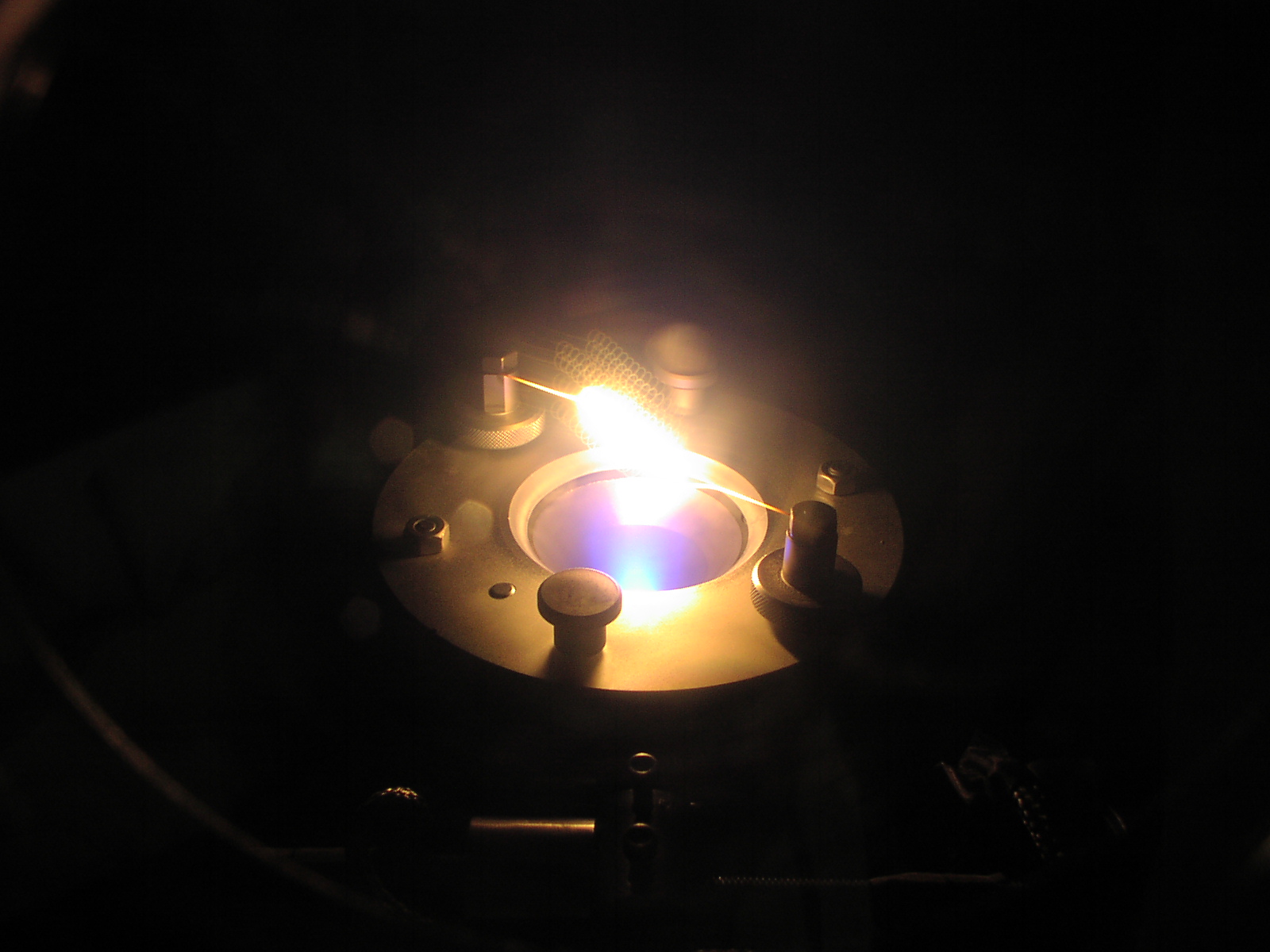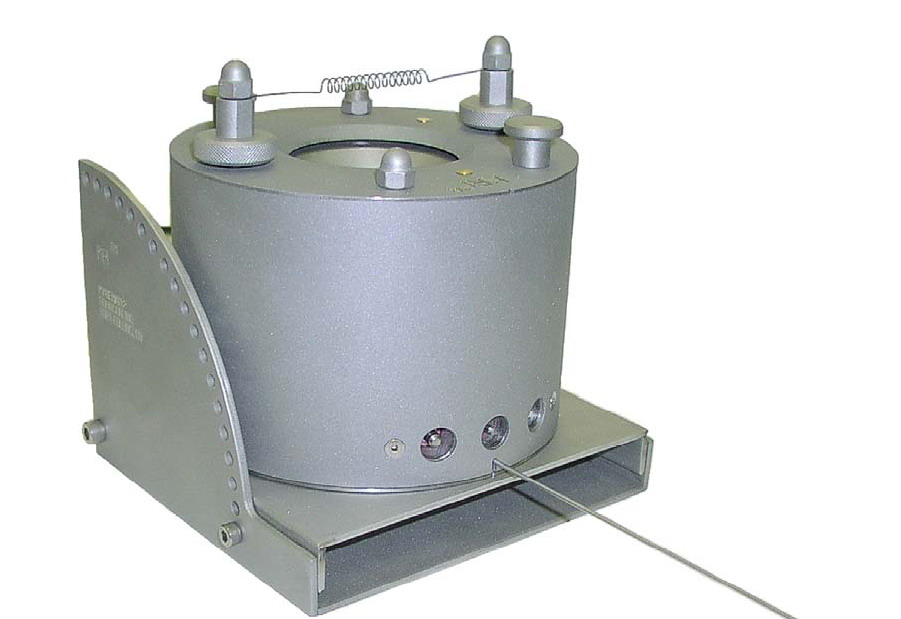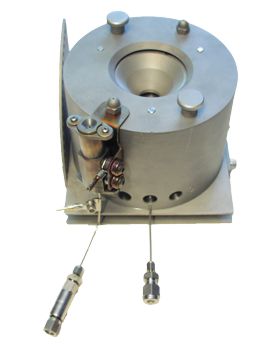Ion Sources
eH1000
Home » Ion Sources » Gridless End-Hall Ion Sources » eH1000
The eH1000 is the workhorse ion source for in-situ preclean and ion assisted deposition. Regularly installed in a wide variety of vacuum deposition systems, it is the new standard ion source in thin film fabrication. Its industrial success is founded in multiple attributes, including efficient plasma conversion and stable power control. The ability to produce critical ion beam properties results in dense and stable films. Whether installed in single rotation or planetary configurations, the eH1000 uniformly covers large substrate areas.
The eH1000 performance has led to its growth as our thin film coating and OEMs customer have benefited from its advantages.

Specifications
| Discharge power | 850 W max |
| Anode current | 8 A |
| Beam current | 2000 mA max |
| Anode voltage | 300 V max |
| Mean beam energy | 35 – 210 eV |
| Gas flow | 1 – 100 sccm |
| Divergence | 60° |
| Operating pressure | up to 1 x 10-3 mbar |
| Height | 100 mm |
| Weight | 3,6 kg |
The eH1000 product versatility can be realized through optimized configurations for specific applications. For example, the eH1000 can be easily modified to produce extra ion O2 beam current for the same input power. By a simple reconfiguration, the ion source will produce more ion beam current for a given plasma power. By a simple reconfiguration, the ion source will produce more ion beam current for a given plasma power. With little cost, this feature allows the process engineer to upgrade the same ion source for new applications which benefit from higher O2 ion currents.
The EH1000 product line produces a high current and low energy ion beam ideally suited for surface treatment and thin film growth applications. Amongst others:
- Ion Beam Assisted Deposition (IBAD)
- In-Situ Substrate Precleaning
- Diamond Like Carbon (DLC)

eH1000F – Filament Version
This unit utilizes a robust tungsten cathode filament to provide both the plasma discharge and automatic beam neutralization. New design features enable the source to operate for extended periods with either inert or reactive gases. New design features enable the source to operate for extended periods with either inert or reactive gases.

eH1000HC – Hollow Cathode Version
This source is equipped with a new design hollow cathode electron source in place of the filament. Extremely long operational times are possible and the absence of a thermionic filament promotes a very high purity thin film environment.
Features & Benefits
Divergent Beam
From the plasma discharge, ions accelerate into a beam with a divergent ion current flux. The half maximum-half angle exceeds a 45º angle from the source axis. The divergent beam from an eH product covers a large area. The capability to uniformly cover a wide process zone facilitates high throughput operation, since a process run with a large load of parts or large substrate area becomes practical with an eH product.
Gridless
The eH product technology relies on a gridless construction. The ions accelerate directly from the plasma discharge to form the beam. The gridless eH technology complements our gridded ion source products, because it produces desirable beam properties not easily available with gridded sources. Other benefits of the eH gridless feature, include no need to maintain, align or replace grids. The eH products are rugged and simple to operate. And they typically cost less than their gridded counterparts.
High Density DC Discharge
The sources utilize a well-proven and efficient plasma generation process. In the discharge chamber, a cathode thermionically emits a reliable source of electrons. The electrons are attracted to a DC biased metal anode. The neutral gas species is efficiently ionized due to a confining magnetic field. This mechanism produces a high density plasma of many gases, including Ar, Xe, O2, N2 and other reactive gases.
Low Energy & High Current Output
The eH products output a high current and low energy beam. The high ion current meets critical arrival ratios for high process rates. Also, the high current enables productive processing on tough, hard materials. While the low energy ion bombardment eliminates damage to surfaces and interfaces. The capability to process at low energies has proven merit when working with delicate materials.
Non-immersed neutralizers
The standard neutralizer configuration is an inexpensive refractory metal filament stretched across the ion beam. The filament is heated to thermionic emission temperature. The filament neutralizer may be replaced with an alternative non-immersed neutralizer. The non-immersed neutralizer sits to the side of the source and outside the ion beam. When the neutralizer is outside the beam, the time between maintenance is significantly longer for the non-immersed neutralizer versus the filament neutralizer. This non-immersed configuration is suited for low frequency maintenance installations and long operational runs when it is important to minimize the risk of process interruption.
Quick Change Anode Module
The eH Product incorporates our patented quick- change anode module assembly. The anode module can be quickly removed from the ion source for maintenance, while the source body remains in the chamber. The anode module is light weight and interchangeable. By simply exchanging the working anode module with a spare module, the eH product can be ready to run within minutes. The removed anode module can be easily maintained on a work bench while your vacuum chamber continues to be productive. The uptime benefits are significant.
Stable Neutralization
The product line provides a dedicated and regulated electron source neutralizer. With a reliable source of electrons, the products can process dielectric, electrically isolated, and electrostatic sensitive substrates. The amount of electrons is precisely controlled to match positive charges. The correct amount electrons are present in the ion beam and they arrive at the substrate surface to provide an electrically neutral process. The operation does not need to rely on an ambiguous source of electrons such as exposed and conductive chamber hardware. Coating build-up and stray electromagnetic fields, which may be present in the vacuum chamber, will not disturb the ion beam quality, stability or neutralization of the products. However, in the case, when the neutralization process is not so critical, the products do allow operation without the neutralizer.
